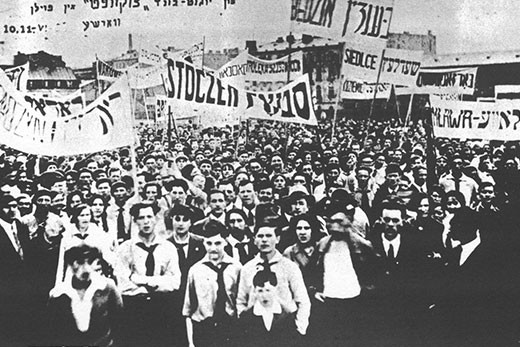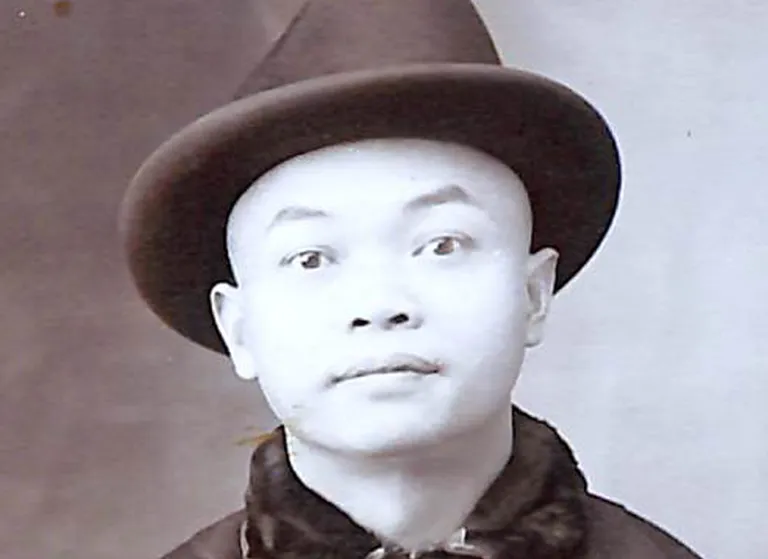These are old articles about Zionism, from the Marxists International Archive.
I’ve been posting here and there, noting that Communists were anti-Zionists, including the large Jewish membership within different communist and socialist parties and organizations.
I’ve tried to stick to material published before, or relatively contemporary to 1948 and the establishment of Israel. It’s important to note that most of these anti-Zionist positions were prior to seeing what the state of Israel eventually did.
Finally, on the grounds of the first principles of democracy, the Socialist movement must oppose the formation of a Jewish State in Palestine. In Palestine the Jews form an insignificant proportion of the population which mainly is Arabian, and which would bitterly and rightfully resent and fight against the robbery of their land. Let Palestine be free to determine its own fate and let it have its independence by all means, but it would be then an Arabian and not a Jewish State.
– The Call, 27 June 1918, p. 3
Leon Trotsky: On the Jewish Problem (1937-40)
Sultan, On the Communist Approach to Zionism
Ben Hall: Comment on Articles on Zionism (April 1944)
Lenni Brenner: Zionism in the Age of the Dictators: Hitler Looks at Zionism
Jewish Social Democrats and Zionism (1918)
Karl Minter: Whither Zionism? Whither Jewry? – II (March 1943)
Zionists (pro Zionism texts)
Fineman, H., Poale Zion: An Outline of its Aims and Institutions (1918, Poale Zion of America)
Important as these historic reasons may be, the Jewish claim to Palestine rests not merely on reasons of the past. The Jews base their right to Palestine on the same title that Americans have to America. They are the only people who are willing and capable to develop the resources of the country. They have the ability to colonize for the
— from Poale Zion
benefit of themselves and mankind. Thirty-five years of pioneer work has demonstrated the ability of the Jewish people to rebuild their fatherland. They are the only people who have sufficient reason to want to continue to rebuild it. The Arabians who live in Palestine can
not develop the country because of the primitiveness of their culture and because they have no special national reasons for investing the energy necessary properly to develop it.
Ber Borochov – Selected Essays in Socialist-Zionism – (leader of Poale Zion, a Polish social-democratic Jewish Zionist Labour Party. Note that contemporary and later socialists repudiated Borochov and Poale Zion.)
Moses Hess – early communist and influential on Labour Zionism. Author of Rome and Jerusalem: The Last National Question, which advocated for a migration to Palestine as a kind of “back to the land” agrarian movement.
Winston Churchill: Zionism versus Bolshevism
But if, as may well happen, there should be created in our own lifetime by the banks of the Jordan a Jewish State under the protection of the British Crown, which might comprise three or four millions of Jews, an event would have occurred in the history of the world which would, from every point of view, be beneficial, and would be especially in harmony with the truest interests of the British Empire.
– Winston Churchill, Zionism versus Bolshevism, 1920
Post 1948 Texts
https://www.marxists.org/subject/jewish/kuhn-galicia.pdf – Rick Kuhn, The tradition of Jewish anti-Zionism in the Galician socialist movement.
Samuel Farber, Lessons from the Bund, Jacobin
https://www.tabletmag.com/sections/history/articles/chimen-abramsky-zionism-bolshevism
https://www.americanprestigepod.com/p/re-post-a-history-of-modern-palestine
https://jacobin.com/2022/06/jewish-labor-bund-nazi-genocide-wwii-labor-migration-anti-zionism
https://www.rosalux.de/en/news/id/40921/the-palestinian-communist-party-in-the-interwar-period
https://jacobin.com/2022/06/jewish-labor-bund-nazi-genocide-wwii-labor-migration-anti-zionism
His denunciations of Zionism carried equal vehemence. According to Majer, Zionists did not lift a finger in the fight against rampant antisemitism in Poland during the 1930s, apart from one small left-wing faction (Left Poale Zion). It was activists from the Bund and the Polish Socialist Party who led that daily struggle.
– from The Ideals of the Jewish Labor Bund Have Outlived Nazi Genocide
https://en.wikipedia.org/wiki/International_Jewish_Labor_Bund
Visions of a Jewish Future: the Jewish Bakers Union and Yiddish Culture in East Los Angeles, 1908-1942 – this has a lot of history of the Bund, as well as Labour Zionism, and their overlaps in Los Angeles.
Socialist Organization in Israeli, Matzpen
Matzpen, The Other Israel. Text at Matzpen.org, PDF at libcom.org.
https://www.972mag.com/israeli-history-independent-left/
Not yet added: Tony Cliff and ISO.
Context
General Jewish Labor Bund – The General Jewish Labour Bund in Lithuania, Poland and Russia, generally called The Bund or the Jewish Labour Bund, was a secular Jewish socialist party initially formed in the Russian Empire and active between 1897 and 1920.
Poale Zion – was a movement of Marxist–Zionist Jewish workers founded in various cities of Poland, Europe and the Russian Empire at about the turn of the 20th century after the Bund rejected Zionism in 1901.
Nationalism on the Left
This is my current understanding as of Jan 2024.
The Bund was criticized for being nationalistic, from more class-focused groups within the socialist movement. The Bund was organized as a Yiddish-speaking, culturally Jewish, socialist organization. This mode of organizing was extremely successful, and had around 40,000 members in the Pale of Settlement in 1906. The Bund were opposed to Herzl’s Zionism.
Likewise, Poale Zion was more openly nationalist, and had a similar basis of organizing around language and culture, but organized globally, including in the United States. They were less successful than the Bund, with around 22,000 globally in 1928, but had the specific goal of uniting all the Zionist nationalists on the left, to colonize Palestine.
The Bund was anti-Zionist, and Poale Zion was Zionist, but both were “socialist” and generally Marxist in orientation.
To the left of the Bund was the broader Communist movement, which was explicitly anti-Zionist. The ones in Jewish areas were not as successful as the Bund. During the interwar period, the Communists demanded that Jewish Communists in Palestine organize multi-nationally, to organize with proletarian Arabs, and one organization formed that did this (Palestine Communist Party). However, for two years, Stalin changed the Communist position to support Zionism after WW2, so the position wasn’t consistent, and may have been opportunism. (See The Real News Network: History of the Israeli Communist Party.)
To the right of Poale Zion were the rest of the Zionists, which included secular Jewish Zionists like Herzl, and conservative and right wing nationalists. These were few in number, but controlled money used to purchase land in Palestine, and could influence the broader Jewish world through relationships with governments, organizations, and press.
Not mentioned are the issues I’ve read about peripherally: the USSR positions regarding Jewish nationality within the larger context of their policies on nationality; the history of migrations into, out of, and within Europe, and the anti-Semitism motivating it; the situation in the Ottoman Empire and its relationship to the Arab areas it controlled.

